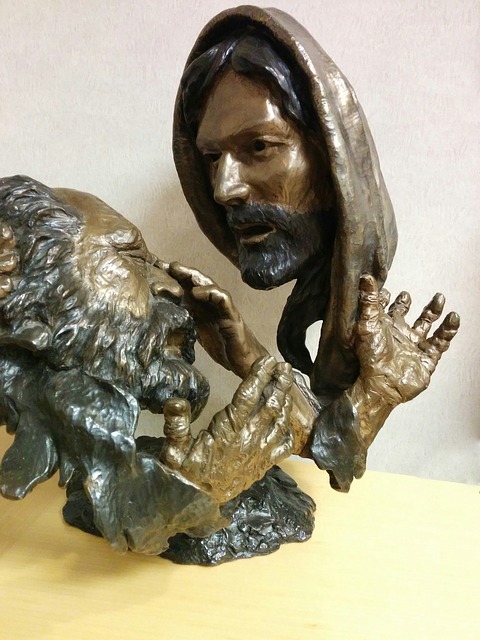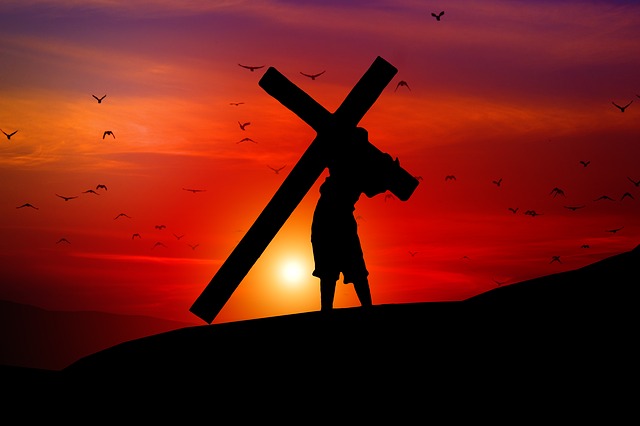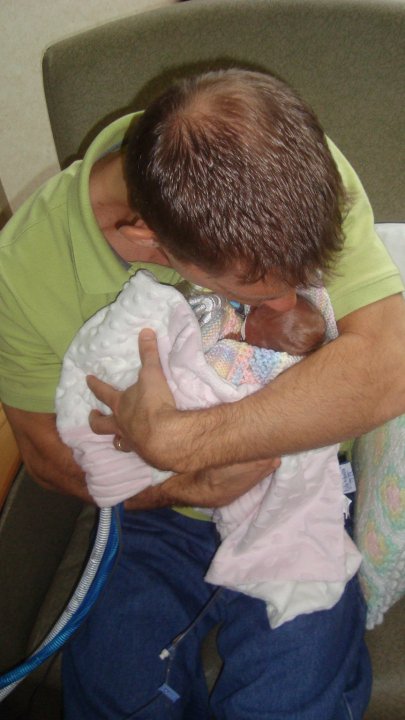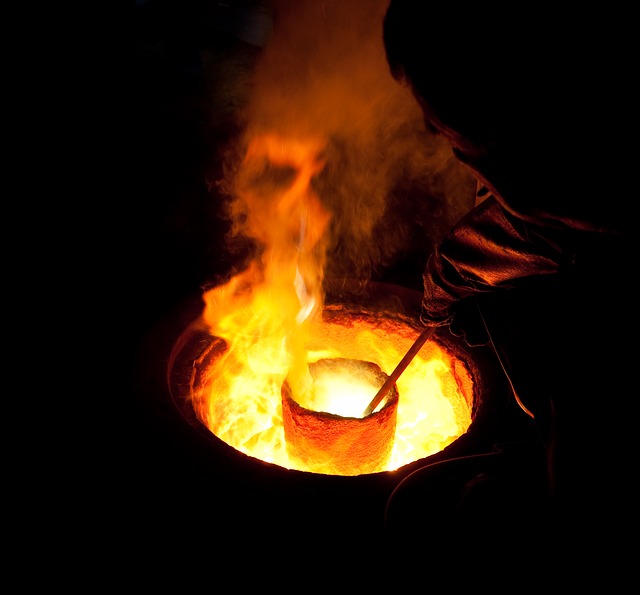“Oh give thanks to the LORD, for He is good, for His steadfast love endures forever! Let the redeemed of the Lord say so.” – Psalm 107:1-2a
Can’t I Get a Witness?
Do you find it interesting that the Psalmist, (King David), has to encourage the redeemed to testify? It is human nature to want to discuss our problems. “Misery loves company,” we say. If we are having a bad day it is easy to complain. If someone wrongs us we want to advertise it. Why do we speak when we should be silent, and why are we silent when we should speak? If we are so quick to bemoan trivial trials, why are we reluctant to give thanks to the LORD for His steadfast love? In the grand scheme of things what can compare with our redemption? Nothing. So why don’t we take the advice of the Psalmist and say so?
Troubles
Every man is encountered with troubles. Psalm 107 speaks of those God has redeemed from troubles or the hand of the foe (verse 2). Verse 3 tells us that these redeemed have been gathered from the four points of the compass, “from the east and from the west, from the north and from the south.” David then proceeds to give four illustrations as if matching them with the compass points.
Exiles
Beginning with verse 4, David looks at those in exile. Those wandering in desert wastes and finding no way to a city to dwell in. Hungry and thirsty their soul fainted within them. And then we see the beginning of a theme in this Psalm. “They cried out to the LORD in their trouble, and He delivered them from their distress” (Verse 6). How? “He leads them by a straight way till they reached a city to dwell in” (Verse 7). What should be the response? “Let them thank the LORD for His steadfast love, for His wondrous works to the children of man! For He satisfies the longing soul, and the hungry soul He fills with good things” (Verses 8 & 9).
Ever wandered in the desert? Sure you have. You are in exile now. You may have an earthly address, but your citizenship is in Heaven. Remember those days when you were looking for meaning? Your soul fainted within you as you hungered and thirsted for a purpose. Your soul wanted a home. Your soul needed rest. In your despair, you cried out to the Lord and He delivered you from your distress. He revealed to you the Way and filled you with the Holy Spirit. Now Christ has gone to prepare your home, and some day you will be brought safely to the Heavenly city where you will dwell forever with God. What should your response be? Give thanks to the Lord for His steadfast love! In Christ has God satisfied your longing soul? Has He filled your hungry soul with good things? Say so.
Bondage
Beginning in verse 10, David looks at those in bondage. Those sitting in darkness and in the shadow of death. Prisoners in affliction and in irons. Their bondage a direct result of disobedience to God’s word. Like the exiles, David tells us that the prisoners cried out to the LORD in their trouble and He delivered them from their distress. “He brought them out of darkness and the shadow of death, and burst their bonds apart” (Verse 14). Although their trouble was different, David expects the same response, “Let them thank the LORD for His steadfast love, for His wondrous works to the children of man! For He shatters the doors of bronze and cuts in two the bars of iron” (Verses 15 & 16).
Remember those days in spiritual prison. I am confident you do. Satan’s deception had you sitting in darkness and in the shadow of death. Sin’s irons held you in affliction. Your bondage was a direct result of disobedience to God’s word. Know a better definition of sin? In your distress, you cried out to God and He delivered you from your distress. The light of God’s Truth penetrated the darkness of your cell. Satan’s deception is no match for God’s Truth. “You will know the Truth, and the Truth will set you free” (John 8:32). Like Paul and Silas, you learned that God can open any prison. The Word of God is a spiritual earthquake that shatters the doors of bronze and cuts in two the bars of iron. You have been set free. What should your response be? Give thanks to the Lord for His steadfast Love! Has the Light of the world repelled the shadow of death you were sitting in? Has the Incarnate Word freed you from sin’s irons? Say so.
Illness
Beginning in verse 17, David looks at those suffering from illness Because their illness is a direct result of sin, David calls them fools. They loathe food and they are on death’s doorstep. Once again, we are told that this group cried out to the LORD in their trouble and He delivered them from their distress. “He sent out His word and healed them, and delivered them from their destruction” (verse 20). The expectation is the same, “Let them thank the LORD for His steadfast love, for His wondrous works to the children of man! And let them offer sacrifices of thanksgiving, and tell of His deeds in songs of joy” (Verses 21 & 22)!
You were once on your spiritual death bed. You were born with a terminal illness. Sin. You too were a fool, saying in your heart there is no God. In your pride, you loathed spiritual food. When you were on life support, you cried out to God and He delivered you from your distress. God inclined your heart towards His truth. Wisdom’s seed was planted. “No God,” was replaced by the “fear of God.” God sent you bread from Heaven and you ate it. Christ paid for your sins on the cross. What should your response be? Give thanks to the Lord for His steadfast love. Are you satisfied with the Bread of Life? Were you healed by Christ’s stripes? Say so.
Overwhelmed
Beginning in verse 23, David looks at those who are overwhelmed. Doing business on the sea, this group encounters a violent storm. While their ship is being tossed by the waves, their courage is melting. Although they were reeling like drunken men and were at their wits’ end, they had enough sense to cry out to God. By now you know that God delivered them from their distress. “He made the storm be still, and the waves of the sea were hushed. Then they were glad that the waters were quiet, and He brought them to their desired haven” (Verses 29 & 30). You also know what is now expected of them, “Let them thank the LORD for His steadfast love, for His wondrous works to the children of man! Let them extol him in the congregation of the people, and praise Him in the assembly of the elders” (Verse 31 & 32).
Remember being tossed around by life’s circumstances? The waters were calm when the voyage began. You were in control of the situation, or so you thought. Then the winds began to pick up and the sky became ominous. As the waves began to rise your self-confidence began to sink. How quickly we learn in a storm that God is so much above us. A few waves and we begin to reel and stagger in our self-sufficiency. When you were at your wits’ end, you cried out to God and He delivered you from your distress. With the command of, “Peace, be still” (Mark 4:39), Christ stilled the storm and hushed the waves. The storm that scared you sunk your self-sufficiency and brought you to Christ. When you were overwhelmed, God’s grace replaced your works. You were glad the waters were quiet, and Christ brought your soul to your desired haven. What should your response be? Give thanks to the Lord for His steadfast love. Are you relieved that Christ has replaced your storms with His peace? Are you thankful that your sins were drowned when you embraced Christ’s grace? Say so.
Testimonies
The day is coming when God will gather His children from every people group. They will be gathered, “from the east and from the west, from the north and from the south.” Their testimonies will be as unique as snowflakes, and yet they will all be the same. “They cried out to the LORD in their trouble, and He delivered them from their distress.” In a very real sense, Heaven is going to be a great big “Say so” gathering!! If you are looking forward to it, say so!
“Thank the LORD for His steadfast love, for His wondrous works to the children of man!”
“Whoever is wise, let him attend to these things; let them consider the steadfast love of the LORD” (Verse 43).



 Although Brooke never made it home alive, her grave-site is visible from our house. Some day Caleb, my wife and I will be buried next to her. Our bodies will be buried, but not our hope. With Brooke’ death, David’s prayer gave way to David’s hope. We can’t bring Brooke back, but we shall go to her. There is no greater hope than that of the Christian resurrection. Even in our darkest valley, Truth was at our side every step of the way. Every time we felt we couldn’t take another step, He would extend His nail scarred hand. The hand He offered was Hope. We will hold it until our family is reunited in Heaven. There faith will become sight. Hope will spread it’s wings as enjoyment, and love will be made perfect. No need to fast and weep, God is gracious. Our daughter lives. I can’t wait to look her in the eye again, embrace her, and lavish her with love. What could be more natural in a perfect world?
Although Brooke never made it home alive, her grave-site is visible from our house. Some day Caleb, my wife and I will be buried next to her. Our bodies will be buried, but not our hope. With Brooke’ death, David’s prayer gave way to David’s hope. We can’t bring Brooke back, but we shall go to her. There is no greater hope than that of the Christian resurrection. Even in our darkest valley, Truth was at our side every step of the way. Every time we felt we couldn’t take another step, He would extend His nail scarred hand. The hand He offered was Hope. We will hold it until our family is reunited in Heaven. There faith will become sight. Hope will spread it’s wings as enjoyment, and love will be made perfect. No need to fast and weep, God is gracious. Our daughter lives. I can’t wait to look her in the eye again, embrace her, and lavish her with love. What could be more natural in a perfect world?

 Cancer & Chemo
Cancer & Chemo Sparks
Sparks